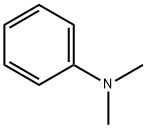A1214812
4-Bromoaniline , 99% , 106-40-1
Synonym(s):
4-Bromoaniline;p-Bromoaniline, p-Bromophenylamine
CAS NO.:106-40-1
Empirical Formula: C6 H6 Br N
Molecular Weight: 172.02
MDL number: MFCD00007822
EINECS: 203-393-9
Update time: 2022-07-08
PRODUCT Properties
| Melting point: | 56-62 °C (lit.) |
| Boiling point: | 230-250 °C |
| Density | 1.497 |
| bulk density | 810kg/m3 |
| refractive index | 1.5680 (estimate) |
| Flash point: | 222-224°C |
| storage temp. | Store below +30°C. |
| solubility | ethanol: soluble0.5g/10 mL, clear, colorless to almost colorless |
| pka | 3.86(at 25℃) |
| form | crystalline |
| color | white to light yellow |
| Odor | Sweetish |
| Water Solubility | <0.1 g/100 mL at 23 ºC |
| Merck | 14,1404 |
| BRN | 742031 |
| Dielectric constant | 13.0(-7℃) |
| Stability: | Stable. Combustible. Incompatible with strong oxidizing agents, peroxides, acids, acid chlorides, acid anhydrides, chloroformates. May be air sensitive. |
| InChIKey | WDFQBORIUYODSI-UHFFFAOYSA-N |
| CAS DataBase Reference | 106-40-1(CAS DataBase Reference) |
| NIST Chemistry Reference | 4-Bromoaniline(106-40-1) |
| EPA Substance Registry System | p-Bromoaniline (106-40-1) |
Description and Uses
4-Bromoaniline is a brominated aniline that is commonly used as a building block in the preparation of pharmaceutical and organic compounds. It is used in the preparation of azo dyes and is condensed with formaldehyde to prepare dihydroquinazolines. In addition, 4-Bromoaniline is also used as an intermediate in the production of other chemicals such as metobromuron, a herbicide, and resorantel, an antiparasitic agent.
Safety
| Symbol(GHS) |    GHS06,GHS08,GHS09 |
| Signal word | Danger |
| Hazard statements | H302-H311+H331-H373-H410 |
| Precautionary statements | P273-P280-P301+P312-P302+P352+P312-P304+P340+P311-P314 |
| Hazard Codes | Xn |
| Risk Statements | 21/22-36/37/38-20/21/22 |
| Safety Statements | 26-36/37-36/37/39 |
| RIDADR | UN 2811 6.1/PG 3 |
| WGK Germany | 3 |
| RTECS | BW9280000 |
| F | 8-9-23 |
| Hazard Note | Harmful |
| TSCA | Yes |
| HazardClass | 6.1 |
| PackingGroup | III |
| HS Code | 29214210 |
| Hazardous Substances Data | 106-40-1(Hazardous Substances Data) |
| Toxicity | LD50 orally in Rabbit: 456 mg/kg LD50 dermal Rat 536 mg/kg |




